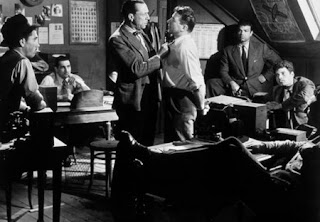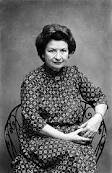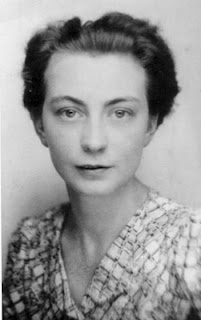A 5-star read
I've always enjoyed Alan Furst's thrillers. They're generally classy reads set around the fringes of the Second World War, but there are really only 6 words to describe The foreign correspondent: Best thriller so far this year. In fact I think it's one of the best thrillers I've ever read. Unlike many of his novels it's not part of a set but is a stand-alone read. On Amazon it's received rather mixed reviews, and I can understand this - if you're expecting classic Furst, it may not be quite what you're looking for. It doesn't have the pace or the action of many of his novels, but I actually enjoyed that. What it lacked in adventure it more than made up for by its portrayal of a nation on the brink of war. And I don't think I had ever been so impressed in any previous novel, by the bravery of the anti-fascist resistance in Italy and Germany.
The hero of the novel, Carlo Weisz, is the eponymous foreign correspondent. An Italian living in exile in Paris, he works ostensibly for Reuters, but he is also the editor of Liberazione, an Italian newspaper supporting the anti-Fascist underground movement; and produced and distributed largely by brave Italians still living under Mussolini's rule. For the emigres living in Paris however, life becomes rather more tense, when at the start of the novel, the then-editor of Liberazione is murdered by Mussolini's secret police. The emigres have no-one to turn to, although the French are sympathetic, the emigres' work is still technically illegal. Life for Weisz becomes more complicated when he is reunited with a former lover, who is working for the anti-Nazi resistance in Berlin. He is offered work by the British secret service which could be helpful in uniting the disparate strands of his life, but in order to be able to do this, he has to make a dangerous trip back to Italy....
What I loved about this novel was its sense of time and place. Both were beautifully portrayed. There was also a fine portrayal of the way life could be for those on the run from their governments. For most of the characters there were no major problems: no threat of being shipped off to a prison camp, but in contrast to this their daily lives were horribly complicated, with constant sniping from the security forces of their former countries, which would sometimes have devastating consequences in their lives. I felt so drawn into these characters and their lives. I couldn't put the book down, and read it in virtually one sitting. Splendid writing - the best thing that Furst has ever written. For a classic wartime thriller you couldn't do better than read The foreign correspondent.
The hero of the novel, Carlo Weisz, is the eponymous foreign correspondent. An Italian living in exile in Paris, he works ostensibly for Reuters, but he is also the editor of Liberazione, an Italian newspaper supporting the anti-Fascist underground movement; and produced and distributed largely by brave Italians still living under Mussolini's rule. For the emigres living in Paris however, life becomes rather more tense, when at the start of the novel, the then-editor of Liberazione is murdered by Mussolini's secret police. The emigres have no-one to turn to, although the French are sympathetic, the emigres' work is still technically illegal. Life for Weisz becomes more complicated when he is reunited with a former lover, who is working for the anti-Nazi resistance in Berlin. He is offered work by the British secret service which could be helpful in uniting the disparate strands of his life, but in order to be able to do this, he has to make a dangerous trip back to Italy....
What I loved about this novel was its sense of time and place. Both were beautifully portrayed. There was also a fine portrayal of the way life could be for those on the run from their governments. For most of the characters there were no major problems: no threat of being shipped off to a prison camp, but in contrast to this their daily lives were horribly complicated, with constant sniping from the security forces of their former countries, which would sometimes have devastating consequences in their lives. I felt so drawn into these characters and their lives. I couldn't put the book down, and read it in virtually one sitting. Splendid writing - the best thing that Furst has ever written. For a classic wartime thriller you couldn't do better than read The foreign correspondent.










Comments